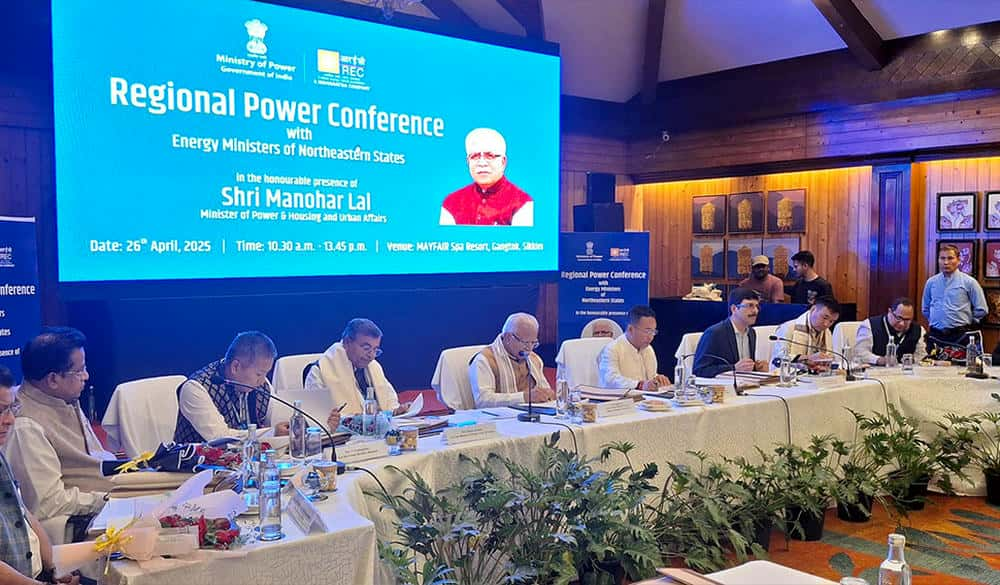Unlock Northeast’s hydro power or risk energy gaps, warns Union Power Minister

Union Power Minister Manohar Lal on Saturday urged northeastern states to aggressively harness their hydro-power and pumped-storage potential to ensure energy security and support India’s growth.
Speaking at the Regional Conference of the Power Sector in Gangtok, Lal stressed that energy is critical to achieving the goal of a developed India (“Viksit Bharat”). He said the conference would help pinpoint specific challenges and solutions for the Northeast’s power sector.
Highlighting the region’s massive untapped hydro resources, Lal called on states to prioritize modern, future-ready, and financially sustainable power systems. Despite India closing the power demand-supply gap to just 0.1%, Lal warned that efforts must intensify to meet future needs, especially with the push towards non-fossil energy sources to meet Net Zero targets.
Since 2014, the country’s power generation has grown across sectors — thermal, hydro, atomic, and renewables — but gaps remain, particularly in the distribution sector. Lal noted persistent problems such as poor tariff structures, inefficient billing and collections, delayed government dues, and high AT&C (Aggregate Technical and Commercial) losses. He stressed the need for cost-reflective tariffs and faster deployment of smart meters under government schemes like RDSS and PM-JANMAN to stabilize utilities’ finances.
The Minister particularly emphasized that government establishments and colonies should switch to pre-paid smart metering as a priority.
The meeting saw participation from key leaders, including Tripura’s Power Minister Ratan Lal Nath, Meghalaya’s Power Minister A T Mondal, Mizoram’s Power Minister F. Rodingliana, Arunachal Pradesh’s MLA cum Power Advisor Jikke Tako, and Sikkim’s MLA cum Power Advisor Sanjeet Kharel.
Earlier, Sikkim Chief Minister Prem Singh Tamang welcomed the delegates and outlined the state’s initiatives to improve power supply reliability. He also sought greater intervention from the Centre to resolve state-specific power sector challenges.

Leave a Reply